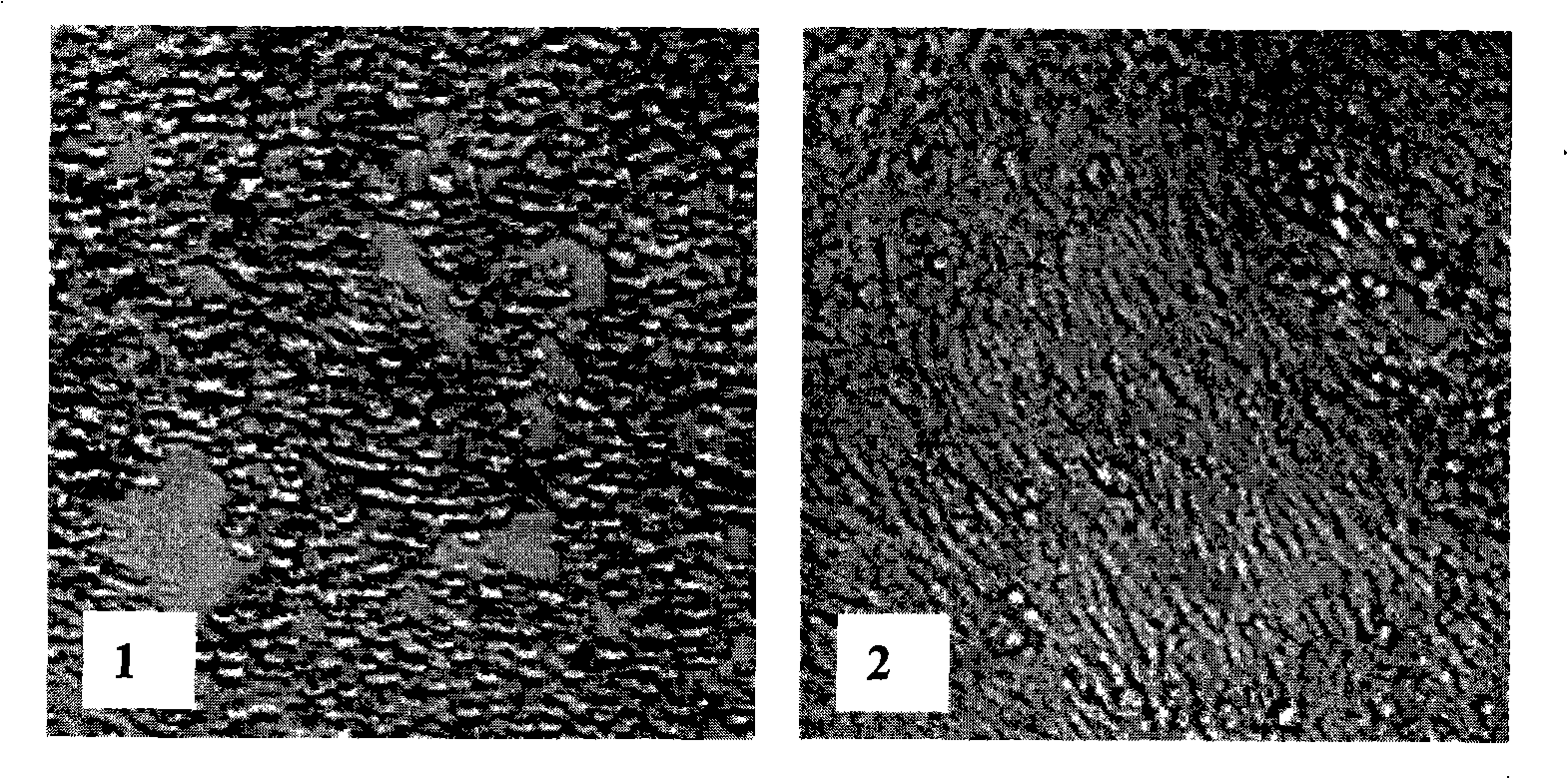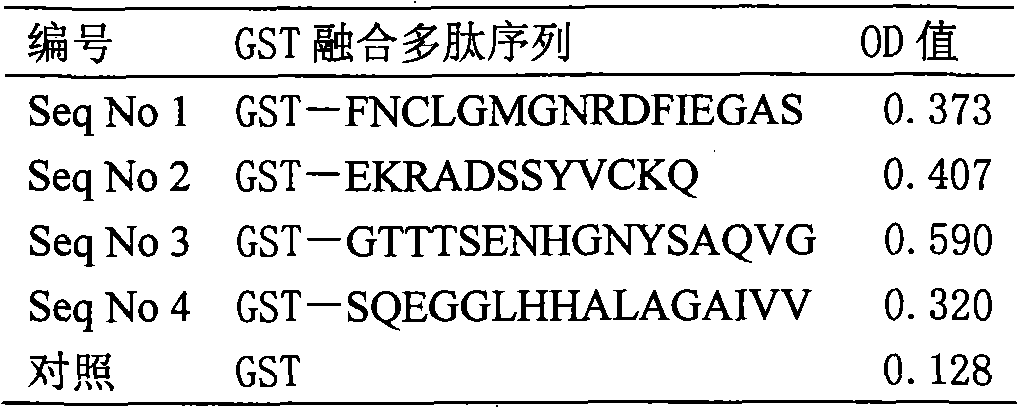B cell antigen epitope polypeptide of encephalitis B virus E protein and uses thereof
A technology of Japanese encephalitis virus and antigenic epitope, applied in the field of molecular immunology, can solve problems such as weak heat resistance
- Summary
- Abstract
- Description
- Claims
- Application Information
AI Technical Summary
Problems solved by technology
Method used
Image
Examples
Embodiment 1
[0022] Example 1 Overlapping (over lapping) polypeptide fusion expression series of JEV E protein antigen polypeptide fragments and indirect ELISA screening of JEVE protein B cell antigen epitopes
[0023] According to the amino acid sequence of JEV E protein, design a series of 36 polypeptides in total, these polypeptides overlap each other, and cover the 1-296 amino acid residue region of JEV E protein, which contains E protein domain I (Domain I) and domain II (Domain II). According to the amino acid sequence of each polypeptide, a pair of DNA strands are designed and synthesized, and the DNA strands are inserted into the expression vector pGEX-6p-1 and GST for fusion expression. Indirect ELISA analysis was performed on the fusion expressed series of recombinant proteins and anti-JEV serum to analyze the epitope of JEV E protein. The specific process is as follows:
[0024] Design of polypeptide sequence→synthesis of DNA chain encoding polypeptide sequence→construction of...
Embodiment 2
[0028] Example 2 Synthesis of Japanese encephalitis virus JEV E protein B cell antigen epitope
[0029] According to the amino acid sequence of the B cell epitope of JEV E protein, the solid-phase peptide synthesis technology is applied, and the automatic peptide synthesizer or artificial peptide synthesis method is adopted. The solid-phase resin adopts Fmoc-protected amino acid Wang resin or other resins. After the resin is swollen with DMF and piperidine glue Fmoc-protected, according to the sequence of amino acids, Fmoc-protected amino acids are added, and the acylation reaction is carried out in the presence of HBTU. After the acylation reaction is completed, after washing, the second Fmoc-amino acid is added for acylation reaction and washed. In such a cycle, a complete polypeptide chain is synthesized sequentially from the C-terminus of the polypeptide sequence to the N-terminus. After the synthesis is completed, select an appropriate reagent according to the amino acid...
Embodiment 3
[0031] Example 3 Chemical Modification of Japanese Encephalitis Virus JEV E Protein B Cell Antigen Epitope
[0032] The polypeptide fragment synthesized according to the method of Example 3 has a natural amino modification at its N-terminus and a natural carboxyl modification at its C-terminus.
[0033] N-terminal acetylation modification method: Synthesize the polypeptide according to the above introduction until the coupling of the last Fmoc protected amino acid is completed, and remove the N-terminal Fmoc protecting group, and then perform the following operations. Dissolve 150 μl acetic anhydride and 20 μL EIPEA in 4.8 ml DMF, mix well and cool in an ice bath. Then add the above mixed solution into the peptide synthesis reaction tube and react for 5 minutes. Then wash with 5ml DMF and dichloromethane (DCM) twice, each time for 5min. After drying with nitrogen gas, the removal, cleavage, purification and identification of side chain protecting groups were carried out acco...
PUM
| Property | Measurement | Unit |
|---|---|---|
| diameter | aaaaa | aaaaa |
Abstract
Description
Claims
Application Information
 Login to View More
Login to View More - R&D
- Intellectual Property
- Life Sciences
- Materials
- Tech Scout
- Unparalleled Data Quality
- Higher Quality Content
- 60% Fewer Hallucinations
Browse by: Latest US Patents, China's latest patents, Technical Efficacy Thesaurus, Application Domain, Technology Topic, Popular Technical Reports.
© 2025 PatSnap. All rights reserved.Legal|Privacy policy|Modern Slavery Act Transparency Statement|Sitemap|About US| Contact US: help@patsnap.com



